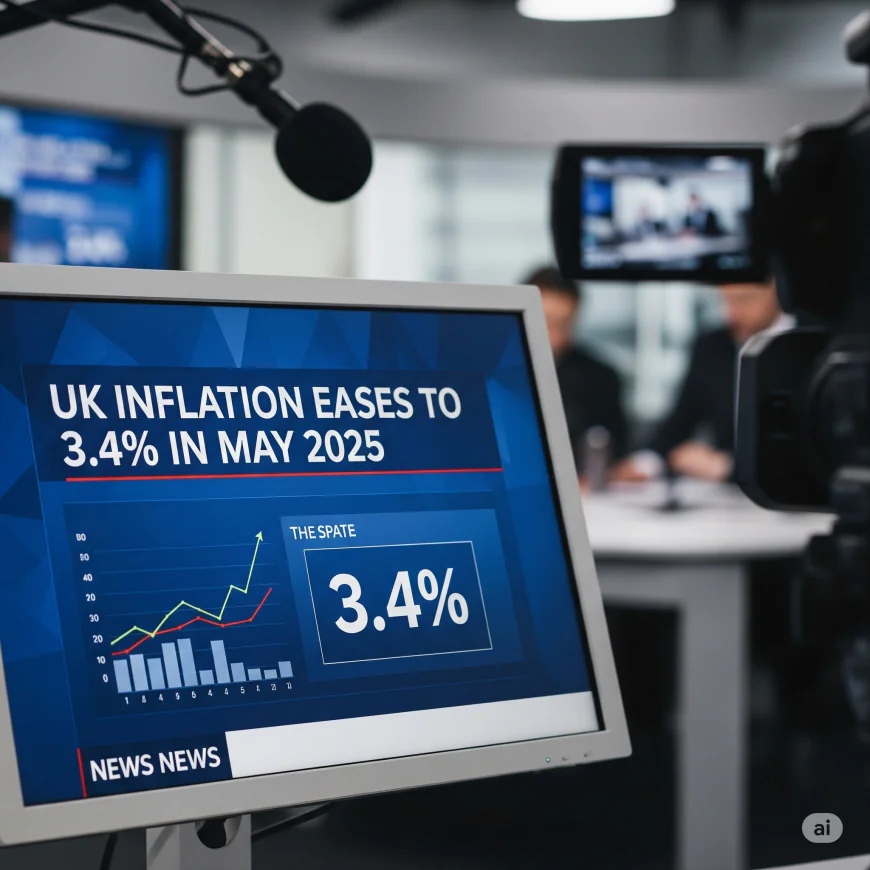UK Inflation Eases to 3.4% in May as Markets Eye Bank of England Rate Decision
UK inflation edged down to 3.4% in May, fueling speculation that the Bank of England may hold interest rates steady. The news follows a surprise economic contraction and rising political debate.

British inflation showed a smaller-than-expected increase in May following a significant rise in April, according to official figures released on Wednesday.
The Consumer Prices Index (CPI) dropped to 3.4 percent last month, down from 3.5 percent in April, which had marked a 15-month high. This data, published by the Office for National Statistics (ONS), came in slightly above most analysts' predictions of a 3.3 percent decrease. This modest fall has increased optimism that the Bank of England will opt to keep interest rates unchanged this week.
Economic Downturn and Political Reactions
This inflation update follows last week's revelation that Britain's economy shrank by 0.3 percent in April, a decline greater than anticipated.
This contraction was primarily attributed to a recent tax increase on businesses and a record drop in exports to the U.S., a consequence of tariffs imposed by President Donald Trump.
Reacting to the inflation report, Finance Minister Rachel Reeves stated that the Labour government's primary objective is to improve the financial well-being of workers. Conversely, Conservative opposition spokesperson Mel Stride expressed significant concern, highlighting that inflation remaining "well above" the two percent target poses a serious challenge for families.
Bank of England's Imminent Decision and Market Expectations
The consensus among experts is that the Bank of England will maintain its main interest rate at 4.25 percent when it announces its decision on Thursday.
Richard Heys, acting chief economist at the ONS, explained that various price movements largely offset each other in May. He noted a decrease in airfares compared to a substantial rise last year, while increases in the cost of chocolate and meat balanced out falling fuel prices.
Future Outlook: Geopolitical Risks and Rate Cut Speculation
Danni Hewson from AJ Bell cautioned that recent conflicts in the Middle East could soon drive oil prices higher, potentially leading to increased fuel costs for consumers and higher airfares.
The Bank of England had already cut its key interest rate by a quarter point last month due to slow economic growth caused by tariffs. This marked the fourth such reduction in nine months, and further cuts are widely expected to continue into early next year.
Sarah Coles, head of personal finance at Hargreaves Lansdown, suggested that the slight dip in inflation might offer some reassurance to the Bank of England as it deliberates its next steps.
However, she believes that since inflation remains significantly above target, this news is unlikely to alter the immediate rate decision. Before this latest inflation data, markets had anticipated two more rate cuts by the end of the year, a forecast Coles believes will remain largely unchanged.


